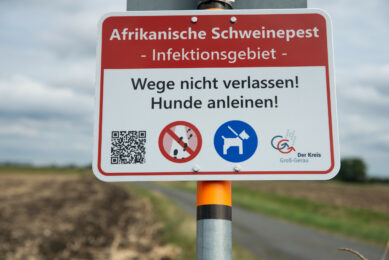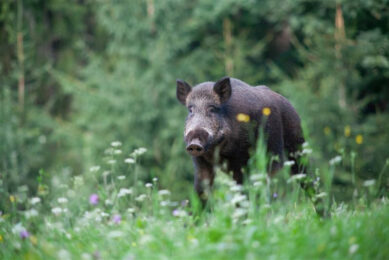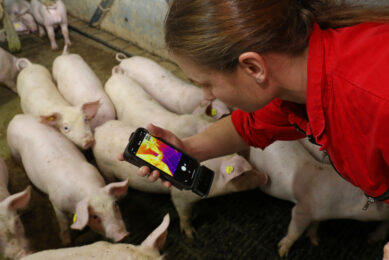Pig welfare – from René Descartes until now
Seen in Dutch media recently – an interesting approach to the animal rights discussion. Philosopher Erno Eskens wrote in De Volkskrant about the history of perception of animals – and how this has evolved into the sometimes explosive situation of nowadays.
Speaking was not an extremist or animal welfarist, but a philosophical scientist – and in this quality he made some interesting remarks.
Key in Eskens’ essay is a walk through the ages – he draws a history of animal rights, from 17th century philosopher René Descartes through his philosophical successors Voltaire and Rousseau.
According to Eskens, Descartes thought animals could feel but not understand pain – hence them feeling pain would not mean anything. Years later, 18th century philosopher Voltaire replied to Descartes, asking why animals had senses if it didn’t mean anything.
The French philosopher Jean-Jacques Rousseau was even more radical – he even wondered aloud if animals weren’t better off than humans, not having conventions and culture or anything of the sort.
Society movements
These thoughts, Eskens went on, evolved into movements in society feeling they should offer protection for innocent, weak animals – as from the middle of the nineteenth century. Eskens names scientists, who discovered that ravens use tools for picking worms, that parrots are good at mathematics and that gorillas can be taught sign language.
Against this background, Eskens says, the European livestock industry appearred in the 1950s. Until these days, efficiency has become increasingly important. “Clever breeding programmes have to ensure that animals grow faster, mature rapidly and become better,” he says. “It will lead to broilers collapsing under their own weight after six weeks, to turkeys that are stuffed with antibiotics and pigs being transported through Europe in overloaded lorries.”
Animal welfare
Animal welfare organisations started to appear, to protest against this, he writes. In his view, however, the Netherlands government did not pay attention to these protests. Complaints about animal welfare violations or food safety concerns were often ignored or not responded to adequately, according to Eskens.
This all, led to the picture of 2009, he describes. Not many people protest, but those who do are very fanatical and willing to commit crimes to make themselves heard.
Eskens moves on to say: “All in all it is clear that the situation has severely escalated. Extremists are being created instead of being dealt with. The authorities would do well to deal with malversations in animal housing, slaughterhouses and livestock transports – and deal with extremists at the same time.”
“Gone is the time that we could rate animals inferior, because they are ‘just animals’. We should be wiser to restore a couple of democratic basis principles and to listen to all interests – including animal rights. Our constitution calls for an equal treatment for equal cases. This principle can also account for animals. In those cases that animals are equal to humans, they should be protected. And in those cases where they are not, rights can be different,” he concluded.
Industry
Personally, I quite like this last paragraph. It would allow the livestock industry to continue the way they have been doing – and which is absolutely necessary to keep a country fed. It also calls for animal welfare wherever possible – although one may wonder if the situation is that bad as is always portrayed by welfare groups.
There’s just one thing bothering me. If the time has come to step up animal welfare matters even more – who is going to pay for that?
I tried to find the answer. Descartes, Voltaire, Rousseau nor Eskens said anything about money.
©











